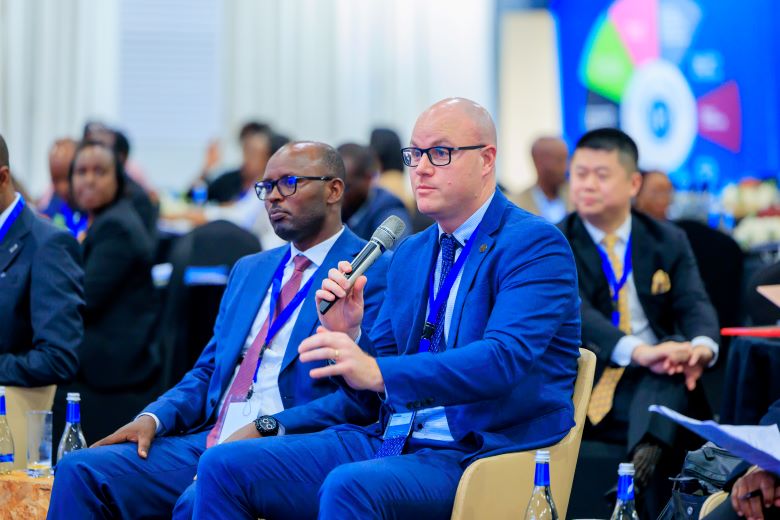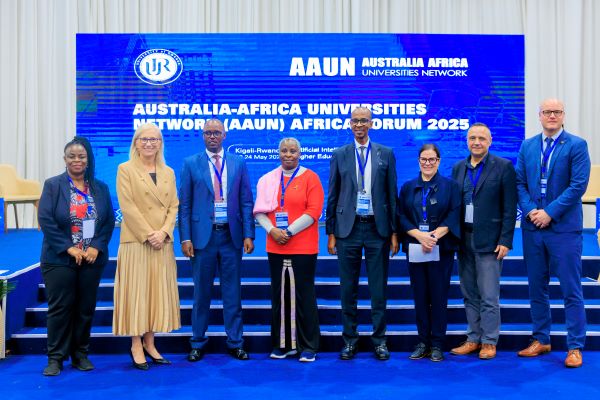In a world racing towards digital transformation, the 2025 Africa Forum of the Australia-Africa Universities Network (AAUN), held in Kigali on May 23, 2025, gathered scholars and experts with a clarion call for an audacious redefinition of the future of higher education using Artificial Intelligence (AI).
Under the theme “Artificial Intelligence and Higher Education,” the forum explored AI and illuminated its potential to redefine how Africa and Australia teach, learn, and collaborate.
Hosted by the University of Rwanda, the two-day forum brought together distinguished academics, policymakers, and innovators from countries such as Nigeria, South Africa, Uganda, Kenya, Botswana, Somaliland, Ethiopia, Mauritius and Ghana.
The discussions revealed a shared a common ground that AI is no longer a futuristic concept, it is already shaping the world, and higher education must not be left behind.
Professor Didas Kayihura, Vice Chancellor of the University of Rwanda, concurred that the conference was a strategic forum where to show how artificial intelligence is reshaping the academic world.
“AI has not only reshaped the way we teach, but also how we conduct research, manage institutions, and solve some of the most complex areas in our studies in order to be more prepared for the future,” he said.
“Universities have always been one of four forms of building and thinking for the future. We cannot sit back and get taken over by our own creations,” Kayihura added.
The forum explored AI’s growing influence in sustainable agriculture, gender research, public health, geopolitics, and personalized learning.

Professor Aldo Stroebel, Co-chair (Africa) of the AAUN and DVC at the University of Mpumalanga, emphasized the importance of intentionality and inclusion in shaping AI’s trajectory.
“Artificial intelligence is racing fast and it provides opportunities to expand capacities to adjust human intelligence. But not all global communities are tapping the potential of this new wave of innovations to improve lives. That’s why this forum, and our network, is so essential,” he said.
Despite Africa’s rising digital potential, gaps in technical capacity, data access, and AI-relevant curricula remain wide. Sub-Saharan Africa continues to rank low in AI readiness, with only three countries including Mauritius, South Africa, and Rwanda, scoring above 50 on global indexes.
These disparities could either widen or narrow, depending on how quickly and equitably AI is integrated into education systems. Dr. Edward Kadozi, Director General of the Rwanda Higher Education Council, recognized the opportunity at hand.
“Artificial Intelligence is no longer a concept of the future. It is transforming the present. From personalized learning and adaptive content delivery to predictive analytics, AI is reshaping how we teach, how we learn, and how we generate knowledge,” he said.
Equally compelling was the forum’s focus on AI ethics, local data sovereignty, and cross-cultural representation. Delegates discussed how large language models, trained predominantly in English, often overlook Africa’s linguistic and cultural diversity.
They explored ways universities could drive the development of localized datasets and ethical AI tools that serve rather than erase African identities.

